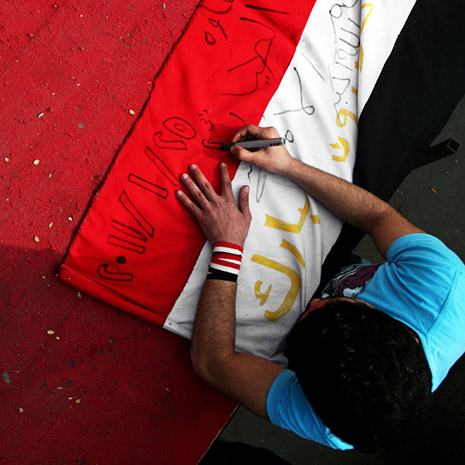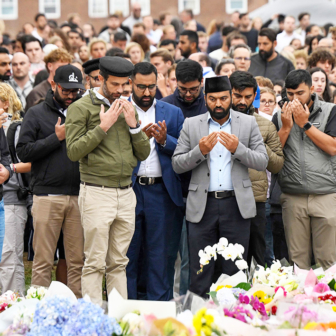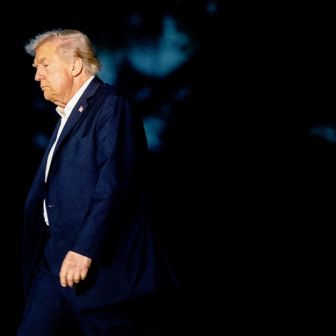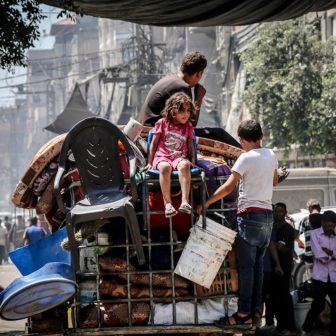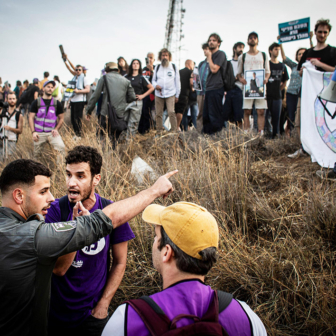A MONTH after the onset of the Egyptian revolt, Egypt’s economy is beginning to return to normal. Banks have opened; the curfew is almost over; Cairo’s main commercial streets are increasingly busy. But the country’s political life is anything but normal. As an Egyptian IT technician jokingly told me, “We’ve pushed the restart button; now the country is rebooting.” The hope, of course, is that the new political interface will be bug-free.
Two processes are at the centre of the rebooting exercise. The first revolves around amendments to six very significant clauses in the constitution, which regulate the scope of presidential powers, the presidential candidacy and terms, and the links between the country’s legal system and executive power. The second is the process and timing of the presidential and parliamentary elections, which the Supreme Council of the Armed Forces (currently governing Egypt) has promised to hold within six months. The first is mired in legalese and technical details, and the second is a fluid process involving various political forces. Both processes are attracting immense interest.
The interest in these issues is a testament to Egypt’s huge middle class, which led and formed the spinal cord of the revolt and is now determined to reap the fruits of that dramatic move. But although the political momentum is still strong, four issues are causing concern among a significant percentage of the country’s middle class.
First, how can secularism be ensured? Unlike many commentators in the West, the Egyptian middle class does not inflate the influence of the Muslim Brotherhood in the Egyptian society. Although it’s well-organised, wealthy and politically savvy, the Brotherhood doesn’t make up the entirety of Egyptian political Islam. A number of wide-reaching Salafist movements are increasingly asserting their presence in a fluid landscape. This is not surprising; political Islam has been demonised and persecuted in Egypt for the past seven decades. Many of these groups have built up a vast social infrastructure over the past three decades, providing services such as affordable healthcare and creative transportation solutions. Some of their leading players now see a historic opportunity in the post-Mubarak Egypt. The rising prominence of some of these groups, however, is a trend that many in the middle class follow with vigilant eyes.
Second, how can Egypt create a level political playing field? A number of leading voices in civic society believe that holding the parliamentary elections in less than six months plays into the hands of sections of the community that already have entrenched power centres, chief among them being leading business interests and individuals and remnants of the ruling National Democratic Party. The worry is that such groups would use their financial sway to re-assert their influence without necessarily appearing on electoral platforms. These voices from civic society suggest postponing the parliamentary elections until the first quarter of 2012, thereby allowing different and new political players to develop their thinking, formulate their manifestos and promote their ideas.
Third, how can the needs of different groups be met without destabilising the economy? In recent weeks Egypt has witnessed a large number of demonstrations across most large cities by groups with specific economic demands or grievances. These are a consequence of decades of economic pain and coercive policies to contain dissatisfaction. In most cases, there is widespread sympathy for the demonstrators, a substantial percentage of whom are among the thirty million Egyptians living in poverty. The concern, however, is that such disruptions would weaken an already vulnerable economy managed by an interim government with a very limited mandate.
Fourth, how can clear priorities be developed? Local media seem to be increasingly focusing on corruption, excesses and sleaze within the top echelons of President Hosni Mubarak’s administration. The details are often sensational, and there’s a burgeoning interest in the size and deployment of Mubarak family’s wealth. Such details attract eyeballs and sell papers, but they are a distraction from the thinking and planning that the country needs.
In the eyes of wide sections of the middle class, this planning should focus on filling political life in Egypt with new, promising participants. There is much talk of “reform” and “change”; there’s jubilation and a sharp use of the Egyptian sense of humour, mostly at the expense of the stalwarts of President Mubarak’s administration. But so far the political energy that the revolt has unleashed has not translated into concrete forces. “The 25th January Youths” and “the Facebook movement” have become household terms in Egypt, but they remain without recognisable leadership, clear objectives or a structured vision of the future.
Last month’s revolt remains nascent, of course, and it is too soon to try to frame it in specific ways. But the very fluid situation in Egypt fuels a worry among the middle class: that the fluidity is not creative enough to produce viable new movements or parties, and will destabilise the country to the extent that the military establishment will assert its control for a longer period than expected.
These apprehensions reflect the middle class’s determination to see through the ultimate prize of its successful move: a true, functioning, liberal democracy in Egypt. But as an ageing Arabic teacher succinctly put it to me, “‘The Egyptian revolt’ is either a noun or an incomplete phrase; in either case, it needs a verb to become a meaningful sentence.” •
